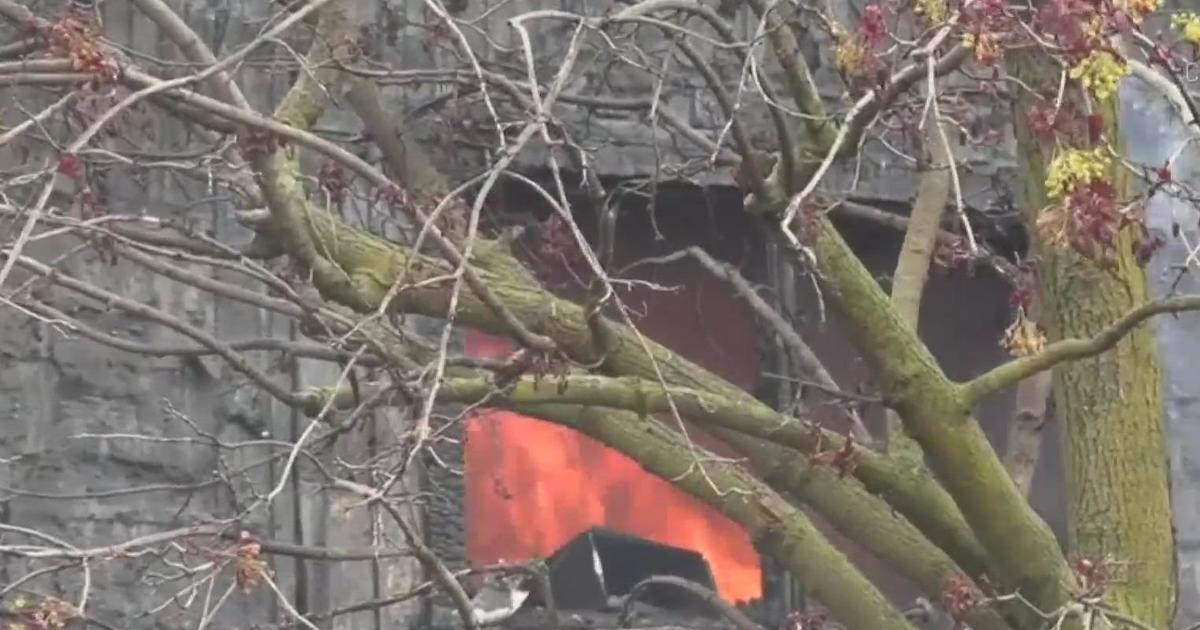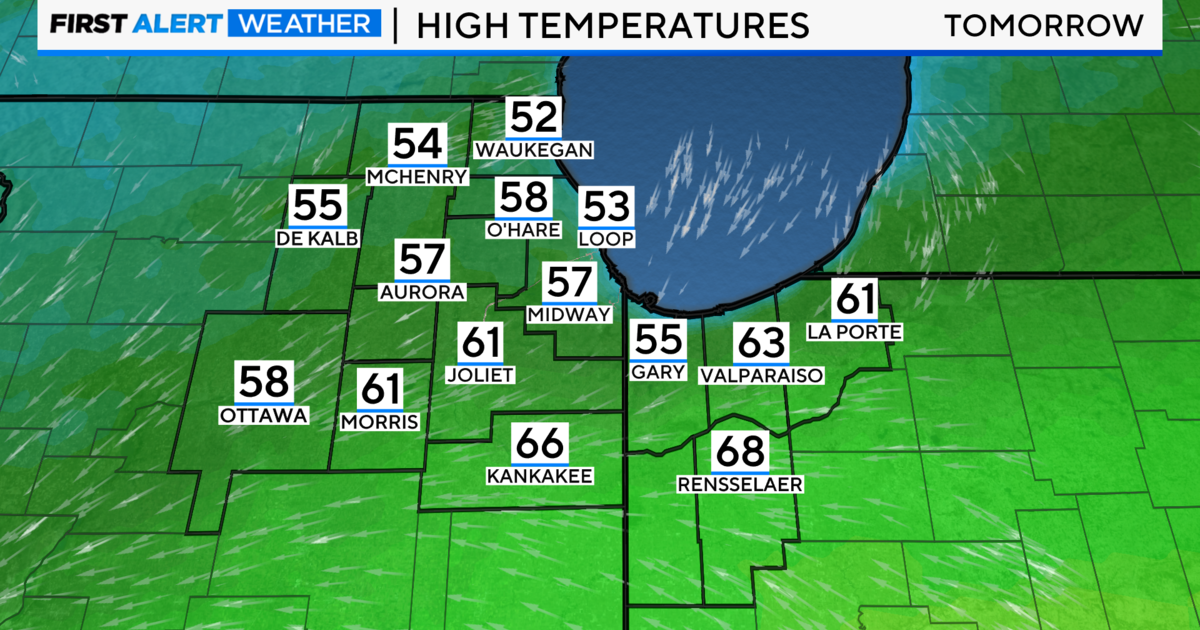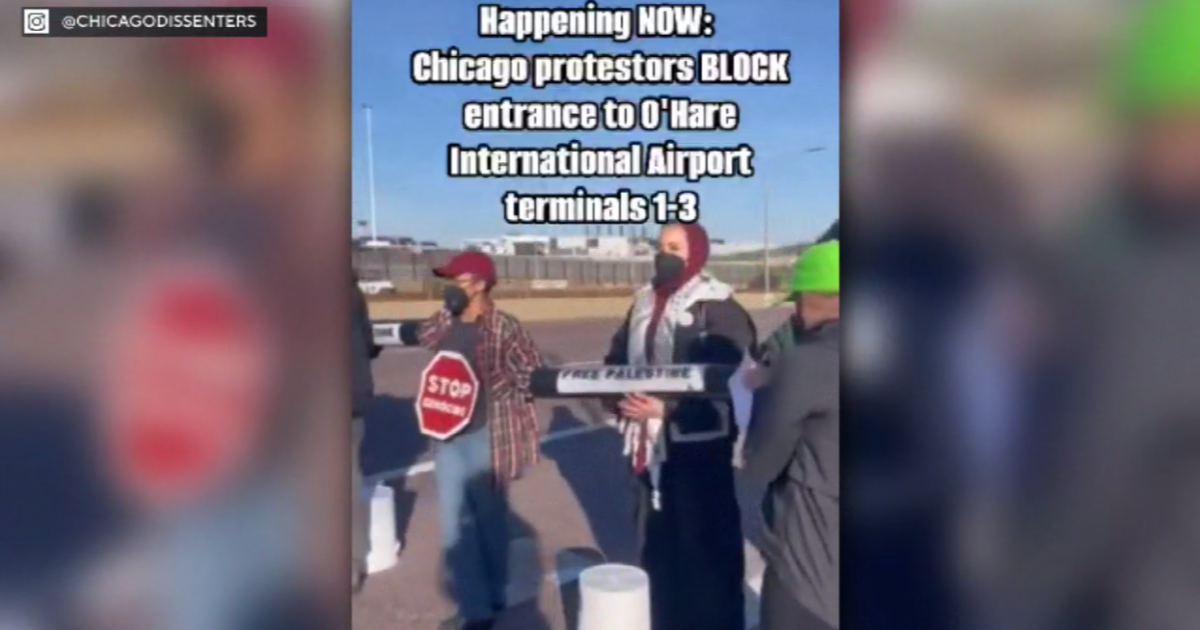Bitter Wind Chills Follow 'Crippling' Blizzard
• NATIONAL WEATHER SERVICE WATCHES AND WARNINGS
• CHECK AIRPORT DELAYS
• CHECK RADAR MAPS
• GET TRAFFIC CONDITIONS
• CHECK SCHOOL, BUSINESS CLOSINGS
• FIND A WARMING/COOLING CENTER
• SEND US YOUR PICTURES OF THE STORM
UPDATED 02/03/11 6:53 a.m.
CHICAGO (CBS) - The blizzard is over, but conditions in Chicago are now miserable in another way.
Subzero temperatures and dangerously low wind chills have gripped Chicago, and thus, in addition to a pair of sturdy boots to trudge through the nearly 2 feet of snow on the ground, bundling up is a must.
RELATED STORY: 10 Worst Snowstorms In Chicago
RELATED STORY: Latest Snow Totals
CBS 2 Meteorologist Megan Glaros said as of 5:45 a.m., the temperature was 2 degrees at Midway and O'Hare international airports, 1 degree in Waukegan, 0 degrees in Kankakee, minus 4 in Joliet and Peru, and an icy minus 9 in Aurora.
But the wind chill factor made it feel like minus 9 at Midway, minus 11 at O'Hare, and minus 22 in Aurora.
A wind chill advisory is in effect for the entire Chicago area until noon Thursday. The National Weather Service warns that frostbite could develop quickly on exposed skin if you are outside.
Temperatures will only reach 11 degrees Thursday.
Glaros says following the blizzard, a low jet stream has brought the polar air mass to settle over much of the Midwest.
The Arctic air will continue to hover over the area into the weekend. The low drops to 1 degree for Thursday night.
The high jumps to 21 on Friday, 28 on Saturday and 31 on Sunday. But the bad news is there will be more snow showers – albeit with fairly low accumulation – over the weekend.
A total of 150 beds are available in city shelters, and city officials are asking that anyone in need come inside and take advantage of them.
LISTEN: Newsradio 780's Lisa Fielding reports
Podcast
"Please, if you can stay indoors, stay indoors on Thursday," Chicago Department of Family and Support Services Director Mary Ellen Caron said.
"No one in Chicago should go without a bed this evening," Caron said Wednesday.
Caron said anyone who needs shelter or doesn't have heat should call 311.
Caron also reminded Chicagoans to check on loved ones, friends and neighbors, and especially the elderly.
Facts About Frostbite And Hypothermia
Temperatures this low can pose a risk for frostbite and hypothermia. Both are serious conditions that can strike easily in extreme cold.
• When blood circulation is impaired by frigid temperatures, frostbite occurs. The first symptoms are a pale appearance and a tingling or stinging sensation, followed by a feeling of pain and discomfort, then numbness. This is a mild form of frostbite, and can be treated by getting to a warm place and trying to bring the affected area to room temperature or a little higher. This can be done by a process as simple as putting frostbitten hands under your arms or using lukewarm water to soak them. But hot water should never be used, and the skin mustn't be rubbed. Warming must be accomplished gradually.
• It is not always easy to predict the severity of frostbite, since it can be several days before the extent of the damage is seen. Skin with mild frostbite turns yellow or grayish, and the affected skin remains soft and pliable, but turns red and flaky as it thaws. But in more severe cases, blisters or sores might develop after one or two days. Never break the blisters.
• A deeper frostbite will turn purple or blue upon thawing. Anyone with those symptoms must seek medical attention immediately. Treatment will usually involve an antibiotic cream for the skin. But the most serious consequence of frostbite may be amputation.
• Hypothermia is a contributing factor in more than 25,000 deaths in the U.S. annually. Watch out for such symptoms as stiff muscles, shivering, a puffy or swollen face, cold skin, slowed breathing, impaired physical coordination, and mental confusion and irritability. If you are experiencing such symptoms, get to warm shelter and call 911 for emergency aid.
• Call 911 if you see a hypothermia victim, and be careful in handling the person, since the heart is extremely weak when the body is cold. The hypothermia victim should be insulated with blankets or any available covering – even newspapers – but should never be re-warmed using hot water bottles, electric blankets, or other thermal heat sources. The victim should not get any food or drink, and the feet should not be elevated. That can cause cold blood to flow into the core of the body and lessen what heat may be left.



